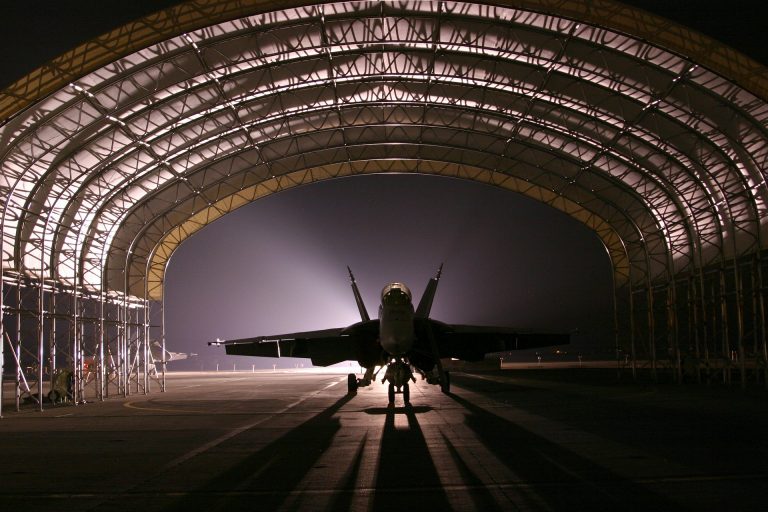Benny Gantz, defense minister of Israel, has called for strengthening the country’s military to better compete with a nuclear weapon-equipped Iran. He asked the government to ensure security services maintain military superiority, “which ensures our secure existence and advances peace.”
“Against the greatest threat — Iran arming itself with a nuclear weapon — we have no choice but to expand our force build-up, to continue to rely on our human capital and to adapt our capabilities and our plans,” Gantz said at a graduation ceremony for Israel’s National Defense College outside Tel Aviv.
Gantz’s statements came amidst reports that the Israel Defense Forces (IDF) was seeking a major budget increase worth billions to strike Iran’s nuclear program. According to a local media channel, the request was made during early state budget discussions, with the concern that the U.S. might fail to curb Iran’s nuclear ambitions.
The security establishment is also accusing previous Prime Minister Benjamin Netanyahu of not allocating enough funds to take action against Iran’s nuclear program.
A July 14 Reuters report stated that Iran was not looking forward to resuming negotiations with the United States to comply with the 2015 nuclear deal. A source revealed to the media outlet that the decision has been conveyed to European interlocutors who are part of the U.S.-Iran negotiations. The two nations have spoken six times since April about the issue, but have not made clear commitments.
Success
You are now signed up for our newsletter
Success
Check your email to complete sign up
“They (Iran) are not prepared to come back before the new government… We are now talking probably not before mid-August,” a source said to the media outlet. Iran’s President-elect Ebrahim Raisi is expected to officially come into power on August 5.
A spokesperson for the U.S. State Department confirmed that Iran sought more time due to the presidential transition, and Washington remains “interested in seeking mutual return” to compliance with the 2015 deal. He added that America’s offer “will not be on the table indefinitely.”
On July 14, outgoing Iran President Hassan Rouhani said in a cabinet meeting that the country’s “Atomic Energy Organization can enrich uranium by 20% and 60% and if one day our reactors need it, it can enrich uranium to 90% purity.” He criticized the nation’s top decision-makers for preventing him from reinstating the nuclear deal. Uranium must be enriched up to 90 percent purity to create nuclear weapons.
French stance, Republican opposition
In a recent speech in Jaffa, French ambassador to Israel, Eric Danon, stated that his country was strongly against Iran securing a nuclear weapon. The ambassador said that even though Israel and France “sometimes disagreed on the method,” the two countries are in agreement on the issue.
“The mullahs’ regime should never possess the nuclear bomb… we stand together to fight simultaneously against the nuclear risk, the ballistic missile threat and the destabilizing actions of Iran in the region, and first of all in Lebanon, in Syria and in Iraq,” Danon said in his speech.
The U.S. officially withdrew from the Iran nuclear deal in May 2015. Former President Donald Trump had called the agreement “horrible,” and wanted Washington to work with allies to prevent Iran from developing nuclear weapons. As a result of America’s withdrawal from the deal and subsequent sanctions imposed by the Trump administration, Iran has been under tremendous economic pressure.
After Joe Biden assumed power in the White House, Washington adopted a softer stance and conveyed its willingness to return to the 2015 agreement. However, several Republicans have denounced the Biden administration’s actions.
On April 6, four Republican Senators sent a letter to Biden, stating that they “oppose any attempt to return to the failed JCPOA (nuclear deal), or any deal that offers one-sided concessions to the Iranian regime while it continues to undermine the security of the United States and our allies and partners. Returning to the JCPOA – which means granting the Iranian regime significant sanctions relief in exchange for nuclear limitations that expire in just four years – is not a viable strategy.”















